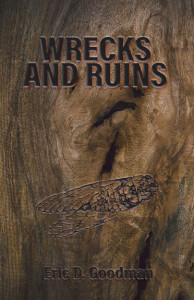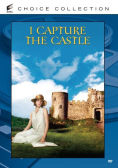
The Japanese concept of wabi-sabi values the beauty of things that are imperfect, unfinished or ephemeral. Drawing on Buddhist concepts of the fleeting nature of this world and life’s inescapable suffering, the wabi-sabi aesthetic differs from Western ideals of beauty and perfection, based on those of ancient Greece.
In this engaging story, Stuart goes beyond wabi-sabi. Having decided that “some items held more weight—more meaning—when distressed or damaged,” he collects shards of brick from torn-down buildings and twisted scraps of metal from car crashes. As a young man, Stu has experienced enough loss to recognise the impermanence and sadness that come with living.
He finds the ideal job for someone who collects broken things: a claims adjuster in an insurance office, doing inspections and appraisals. Through his work, he begins taking photographs of the broken or ruined things he encounters. With the camera he explores how isolating something we might consider trash from its context forces the viewer to appreciate the purity of its shape, and perhaps reevaluate what we consider art.
Believing that everything eventually breaks makes him wary of commitment, at least when it comes to romance. He wants to continue hanging out with his three lifelong friends, but with women he prefers playing the field. Then he meets Tiffany.
The characters are well-drawn, especially the three friends whose different paths provide a contrast to Stu’s. When one friend drops out of high school to marry his pregnant girlfriend, Stu’s reaction is “‘Don’t you guys realize we’re too young for a life sentence?’”
Through Stu’s story, Goodman gently probes the way identity is formed and its fluidity. As Stu navigates the currents of his life, his turning points seem to occur when the Brood X cicadas appear every 17 years. Whenever the cicadas sing again, he finds himself reevaluating his decisions. He returns again and again to the identity he forged when young, an identity that rests on his determination to live in the moment because nothing lasts.
Part romantic comedy and part coming-of-age story—as long as you understand that we are coming of age throughout our lives—this is a story that is particuliarly apt for our time. The COVID pandemic brought many unexpected changes to our lives, and as we emerge from it, many of us debate what we will keep and what we will discard, or if we have a choice about it. We ponder whether it is time to change the way we live or even if it is possible to do so.
As the world changes around us, have you been thinking about what to keep and what to leave behind?
Disclosure of Material Connection: I received a copy of this book free from the author. I was not required to write a positive review. The opinions I have expressed are my own.
